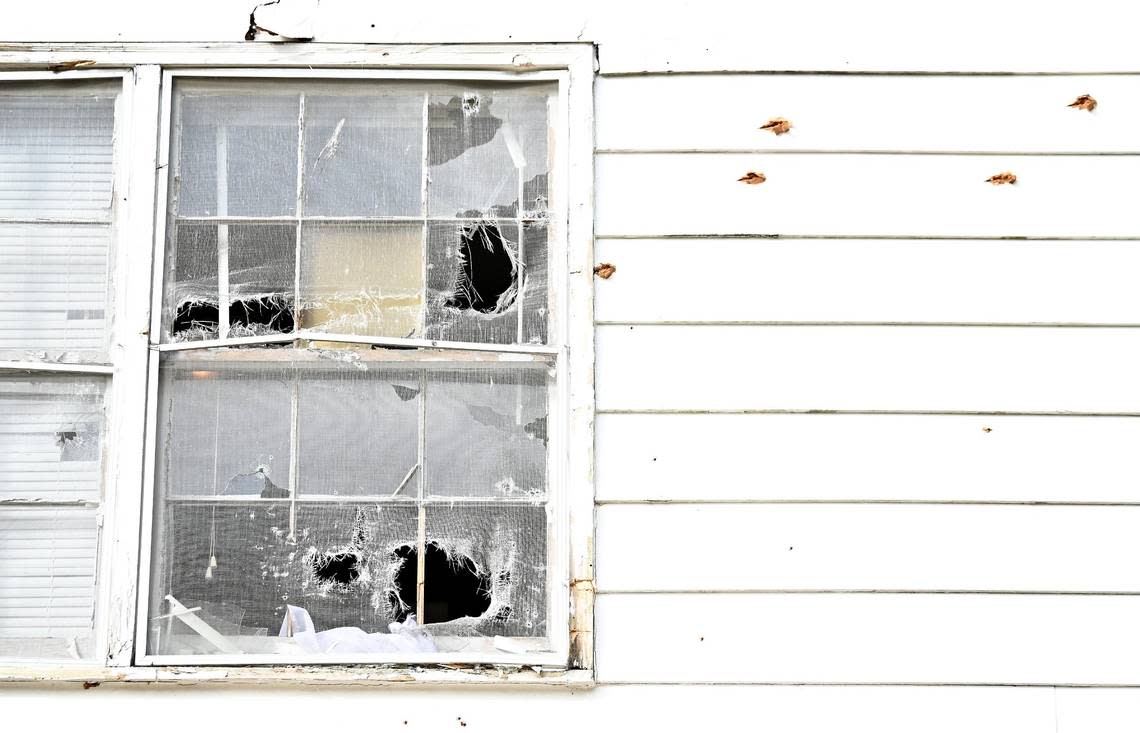Charlotte shooting came after US Marshals tried serving a warrant. Here’s what they do

The Carolinas Regional Fugitive Task Force of the U.S. Marshals Service led the effort to arrest a man in Charlotte on Monday, which turned into one of the deadliest days in city history for law enforcement when the suspect opened fire with a high-powered rifle.
The incident left four law enforcement officers and a suspect dead and four more officers injured.
Here are excerpts from a 2021 Observer story explaining what the marshals service is.
Marshals’ task forces include local police who are deputized as federal agents. Once deputized, those officers can make arrests in jurisdictions other than their own.
What is the US Marshals Service?
The service was the first federal U.S. law enforcement agency, founded in 1789, according to its website, USMarshals.gov.
The president appoints a U.S. marshal for each of the country’s 94 federal judicial districts. About 3,738 deputy U.S. marshals and criminal investigators work for the agency, its website says.
The service is “the enforcement arm of the federal courts, involved in virtually every federal law enforcement initiative,” according to its website.
It’s the primary federal agency investigating fugitives.
What tasks do marshals perform?
The U.S. Marshals Service:
▪ Tracks down suspects who have outstanding federal warrants. Deputies and members of the task forces arrest an average 310 fugitives each day across the country, according to USMarshals.gov.
Those arrests clear an average of 90,446 warrants a year, according to the service.
An investigation by USA Today and The Marshall Project, however, found that about two-thirds of arrests by deputies and the task forces since 2014 were of suspects wanted on local warrants.
The U.S. Marshals Service says on its website that it also assists state and local agencies “in locating and apprehending their most violent fugitives.”
▪ Protects federal courts.
▪ Manages and sells assets that were illegally obtained by criminals and seized by law enforcement.
▪ Houses federal prisoners and drives them to and from court.
▪ Operates the federal Witness Security Program.
Do they wear body cameras?
Deputy U.S. marshals aren’t required to wear body cameras. Neither are investigators with any other federal law enforcement agency.
Is it time for a change in federal law to require them?
Several national groups think so, including the International Association of Chiefs of Police.
“Body-worn cameras provide officers with a reliable and compact tool to systematically and automatically record their field observations and encounters,” according to the association’s website.
Such cameras have become “very popular” in the U.S., with thousands of police departments assigning them to their officers, according to the Center on Media, Crime and Justice at John Jay College of Criminal Justice in New York.
The libertarian Cato Institute found that 89% of Americans support such cameras.
According to the institute, 74% of those surveyed believe the cameras “will equally protect both the police officers that wear them and the citizens who interact with the police.”

